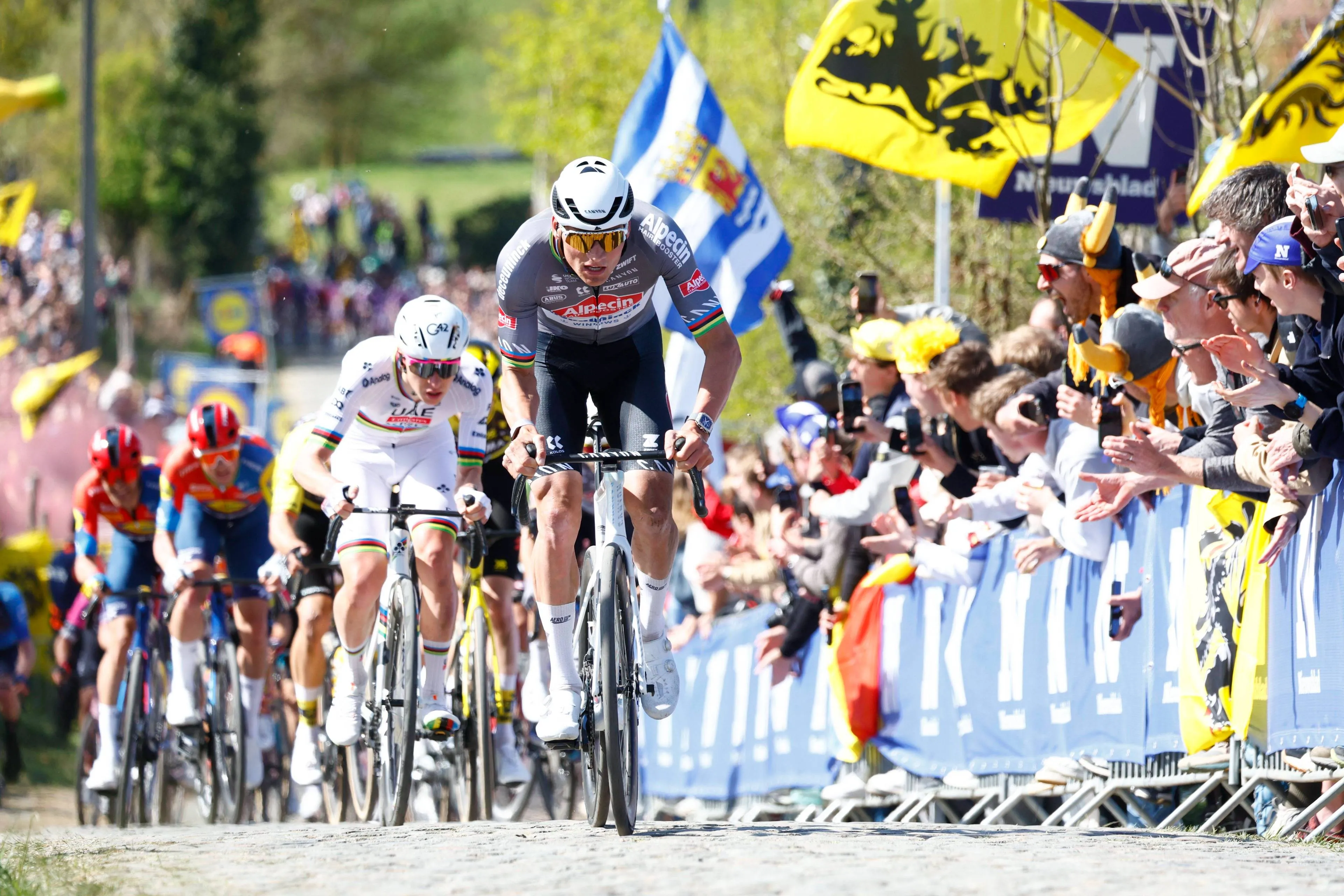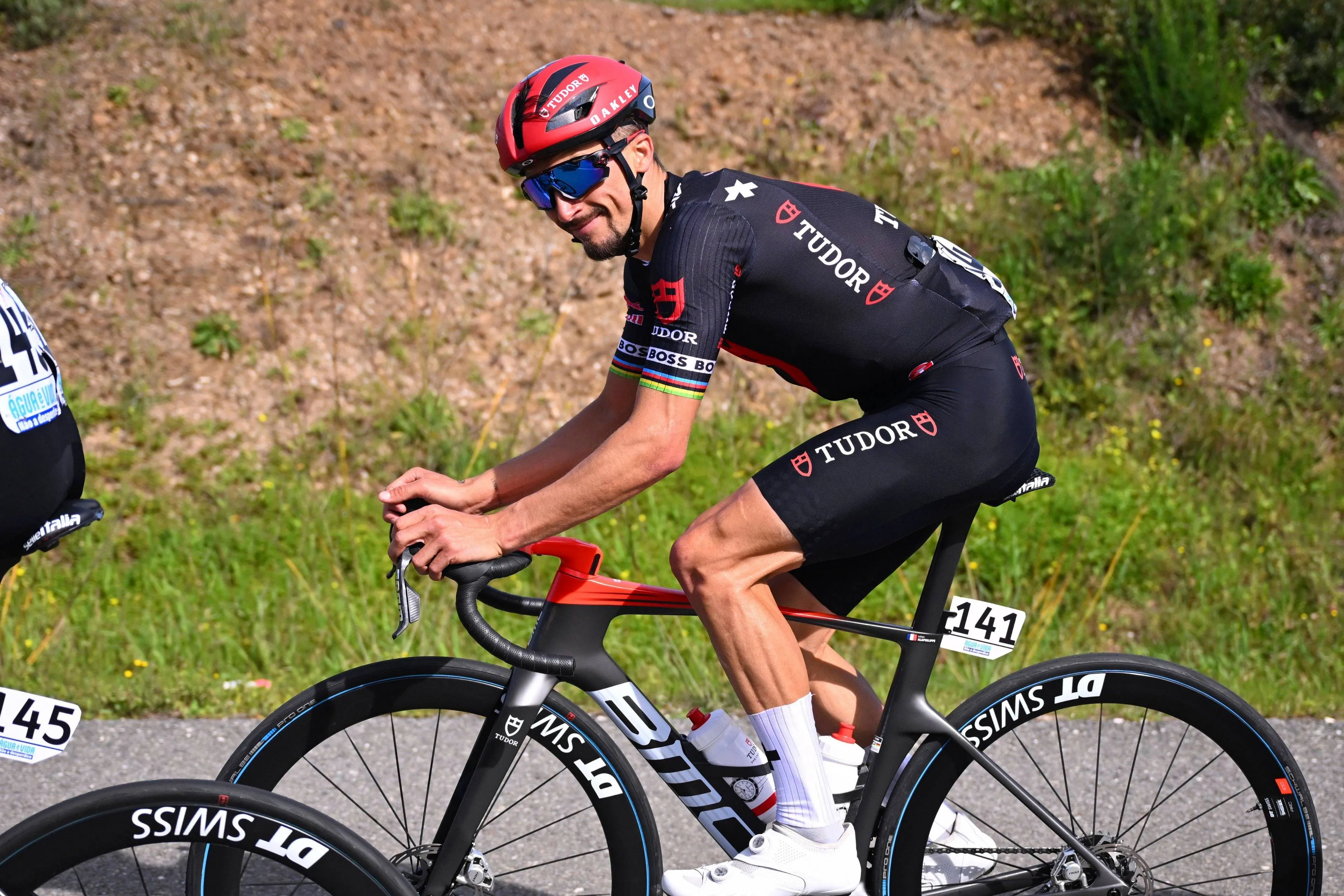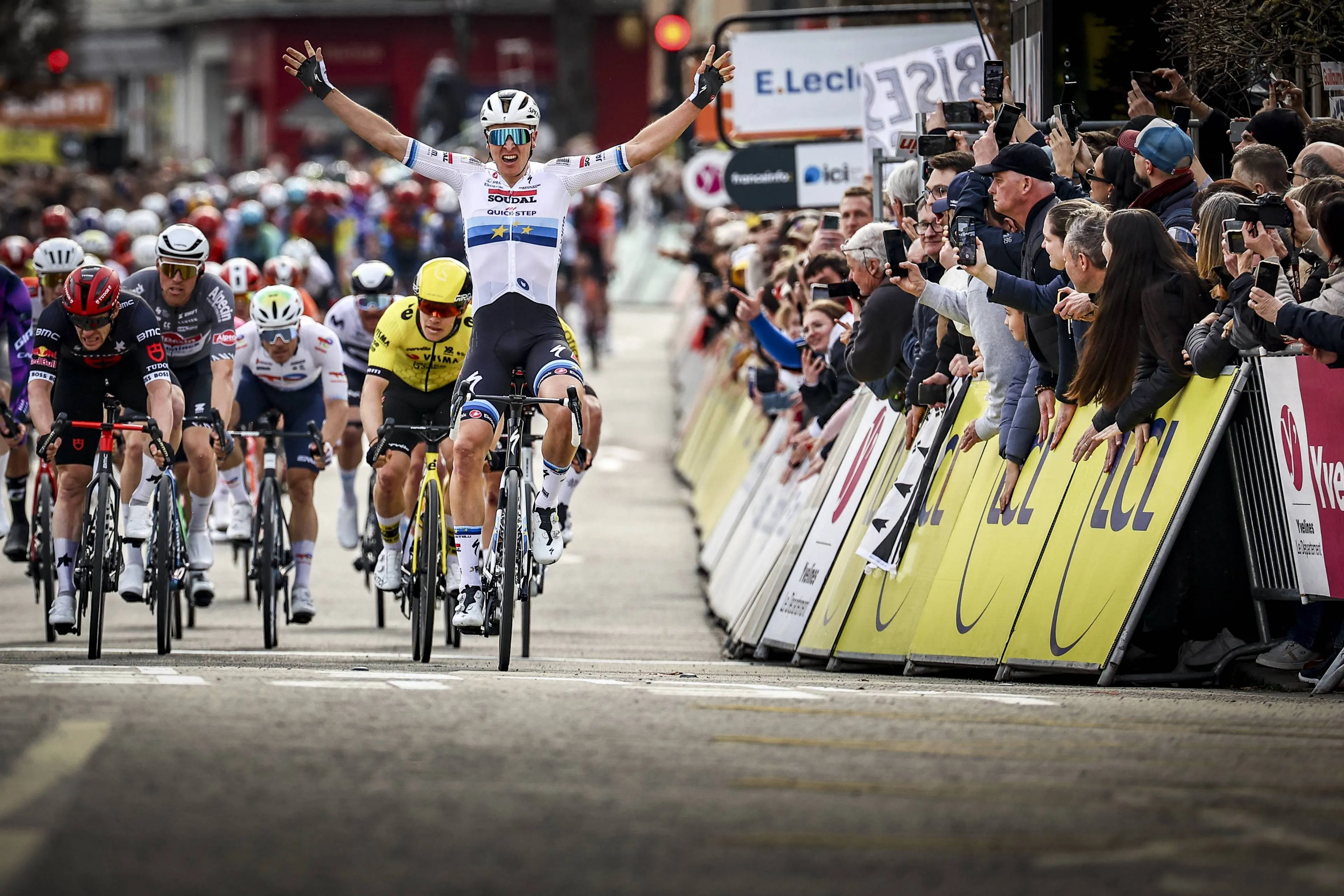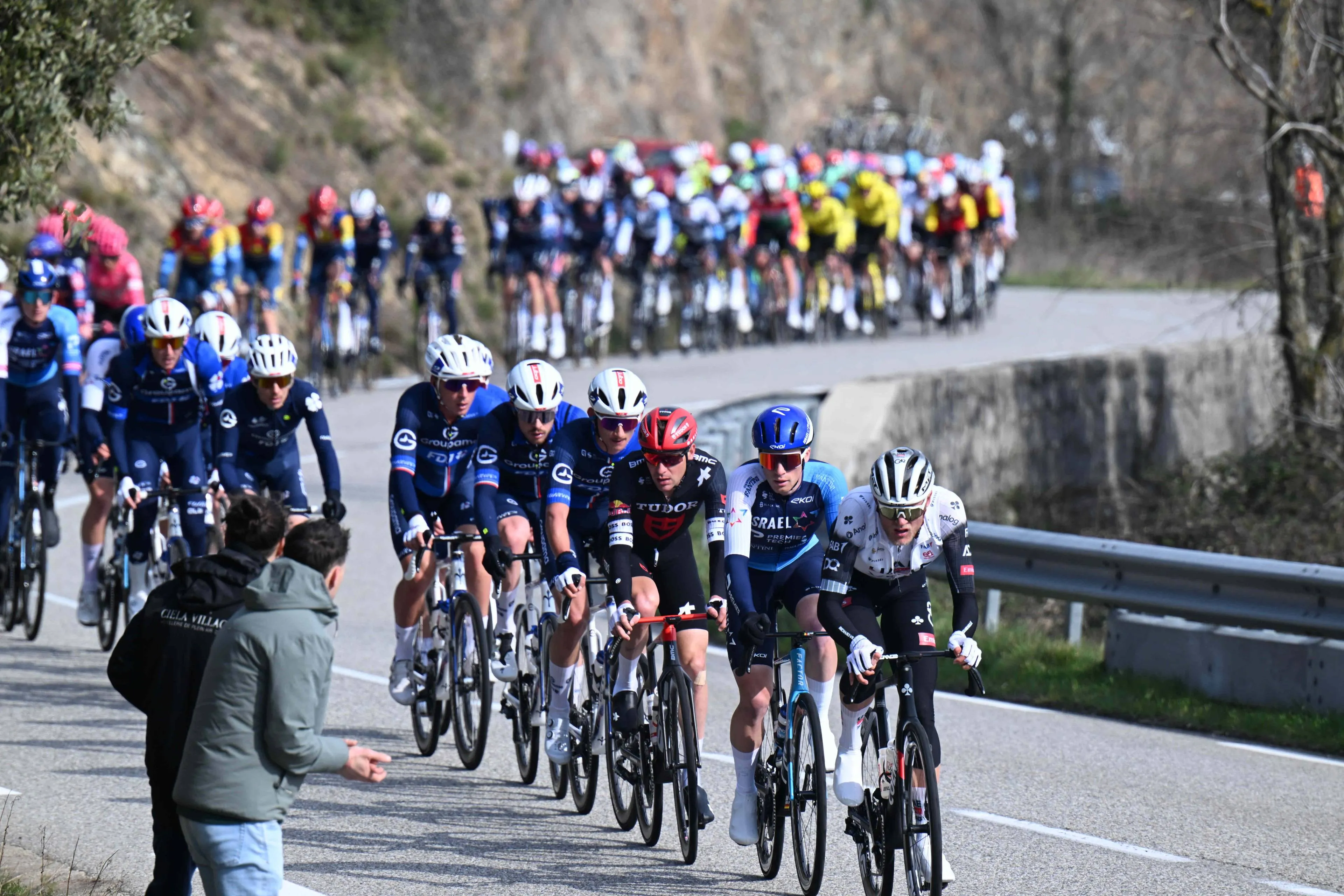Tadej Pogacar breaks 3 Strava records during his reconnaissance for Paris-Roubaix 2025 including fastest time on Mons-en-Pévèle
Cycling
First they'll battle it out at the Tour of Flanders, but many fans would be lying if they said they weren't looking forward to the following dish even more: Tadej Pogacar vs. Mathieu van der Poel duel at Paris-Roubaix. The Slovenian is yet to make his debut at the Hell of the North this season, but his training efforts are quite promising.
According to the UAE Team Emirates - XRG rider's latest activity on Strava, Pogacar did a 213-kilometer training ride this Wednesday, where he broke no less than 3(!) records on sectors of Paris-Roubaix, including Mons-en-Pévèle.
In addition, Tadej Pogacar also recorded the 2nd fastest time ever at Carrefour de l'Arbre, and went through the Vieux Quaremont. There is no doubt that the little cannibal from UAE is taking this part of the season very seriously, and hasn't even begun to think about the Tour de France.
Victories at the Tour of Flanders and Paris-Roubaix are haunting a rider who feels wounded after the defeat at the last Milano-Sanremo. Will this latest training session by Tadej Pogacar make Mathieu van der Poel nervous?
Read also
Tadej Pogacar a effectué une sortie de 213km ce mercredi où il a pris le meilleur temps (KOM) sur Strava dans 3 secteurs de #ParisRoubaix, dont celui de Mons-en-Pévèle. Il a signé aussi le 2e temps dans le Carrefour de l'Arbre. Il est passé aussi par le Vieux Quaremont. pic.twitter.com/FaeTBIypLf
— Le Gruppetto (@LeGruppetto) April 2, 2025
Or sprinting, or against wind. I think by now they’ve optimised the tire tech and pressures to largely smooth out rider weight effects. BUT, I’m going to go through past podiums to see what weight distribution trends are to be spotted coz I’m curious now.
Not sure exactly what you are saying, but if you're implying that being heavier is helpful if you're going against the wind or sprinting, then no, it isn't. Ceteris paribus (all else held equal) being a lighter cyclist is always better, save downhill. The reason why heavier cyclists do relatively better than lighter ones on flatter courses is because they will have to have a higher power than the lighter cyclist in order to have any chance at all against them, and flatter courses mean that the lighter cyclist has nowhere to display the better power to weight ratio, meaning that significant ratio is power to CdA, which is usually an advantage to the heavier cyclist.
I am saying I have an open mind at the moment for your cobbles theory but cannot agree with your wind statement (and by extrapolation sprinting since that implies speeds where wind is by far the limiting factor). Had you argued all things not being equal I could have agreed with you but if we thus assume 2 objets of the same size and speed but with differing weights, it is completely obvious that the lighter one will suffer faster in the wind. Extrapolate to the extreme, drop stuff off cliffs or just remember your momentum equations to verify. Now, obviously in real life we have to assume riders of different weights won’t have the same wind hitting surface but you cannot generalise at all then as you can have very unaerodynamic light riders and very aerodynamic heavy ones because it isn’t weight that defines CdA, Teslas have an incredible CdA and are ridiculously heavy, and someone like Harry Levreyssen is a Tesla in cycling.
No, weight doesn't affect the ability to go into the wind at all. It's all CdA vs power at that point. For example, it's "obvious" that a heavier object falls faster than a lighter one. But, absent wind resistance, it's not true (Galileo demonstrated this). An appeal to "obviousness" doesn't matter when the physics is clear. And yes, you have to be able to hold everything else constant, or you can't determine anything! So, imagine a 300 watt rider at 80 kgs with a CdA of 2.0, then imagine that same rider at 70 kgs with a CdA of 2.0. (Assume ideal tire pressure for both, same bike.) Which one can ride over a bumpy road fastest? The lighter one, as he doesn't have to lift as much. That's also why when they test bikes on 5 star cobbled sectors, the MTB goes faster than even a cobble-build road bike. Even though rolling resistance is higher on a flat road, and the CdA is junk, it smooths out the cobbles, allowing the person to not lift as much as they otherwise would.
So why did Tadej say, in an interview, when he won Flanders and was asked if he would try Roubaix next, that he would need to gain more body weight before he thinks of Roubaix? Tadej weighs 25 lbs. lighter than MVDP, last I checked.
...Cause cycling at this level is always about the compromise of weight vs power. Pogacar could be stronger at a higher power, but his power to weight ratio would suffer. All else held equal is very important to understand they physics here, but that's *never* how cycling actually works.
Just in
Popular news
Latest comments
- To quote the article: riders from Arkéa - B&B Hotels and a few others seized the moment to launch an attack, increasing the pace as Pogacar was briefly off the bike. Not coolmij08-04-2025
- I don’t think it was a matter of easing up. I think it was a matter of attacking. And MVDP said his team would respect similar situations. Perhaps not on the penultimate climb, but I believe they would. To accelerate is a jerk move.mij08-04-2025
- His basic attitude always has been (and we know age often reinforces inherent values), if I’m going down I’m going to try taking you with me.Mistermaumau08-04-2025
- I know it’s tradition and nice but to make the discussion more interesting, if an Arkea rider had driven up to tell Alpecin or UAE to ease off for Mozzato or Vauquelin having a P, would they have been as gentlemanly?Mistermaumau08-04-2025
- That’s probably about right although if they’d talked it over it would have been in all their interests to work together to chase Pog down because those 4 arriving at the finish in that scenario would have left all 4 with a chance of victory.Mistermaumau08-04-2025
- Exactly, that easily makes for a minute at the front. You don’t see Pog cracking often either (less often than MVDP even) but when he does it’s lights out and over too. This is completely normal and to be expected, at the level of competitiveness all these guys are they only crack once they’ve pushed beyond their manageable limit and there’s no coming back from that. When your rival forces you into the red to keep or catch up, it’s over, in that respect, well done to WVA who seems to be world champion in staying just outside the red for as long as he can.Mistermaumau08-04-2025
- If I remember well, Pidcock slowed, whether out of respect or strategically or just happy he could ease off a bit, only he knows. Your point?Mistermaumau08-04-2025
- I believe Mathieu rather gets beaten by a stronger rider than one who raced smarter. That is why he wanted to team up with Pogacar to drop the JV riders and Mads who were not helping in the chase of the first group since they had a teammate up front.JoostMehrtens08-04-2025
- Just shows that LA is not truly repentant. JUSTICE was served. No winner, no second , no third on the podium for those 7 years. No real winners could be determined, ever. Lance got to keep most of his money , he really should can it . He is toxic to cycling.dave08-04-2025
- Tricky one as while I agree Pogi and UAE are simply faster over a long distance which means Visma and MVP need to be as smart with energy use as can, it's also been proven in the past that one way for Pogi to be beaten is relentless attacks, to put him into the red. However that does require a rider to as good as sacrifice themselves for that one move which makes riskHoopoeChai07-04-2025









